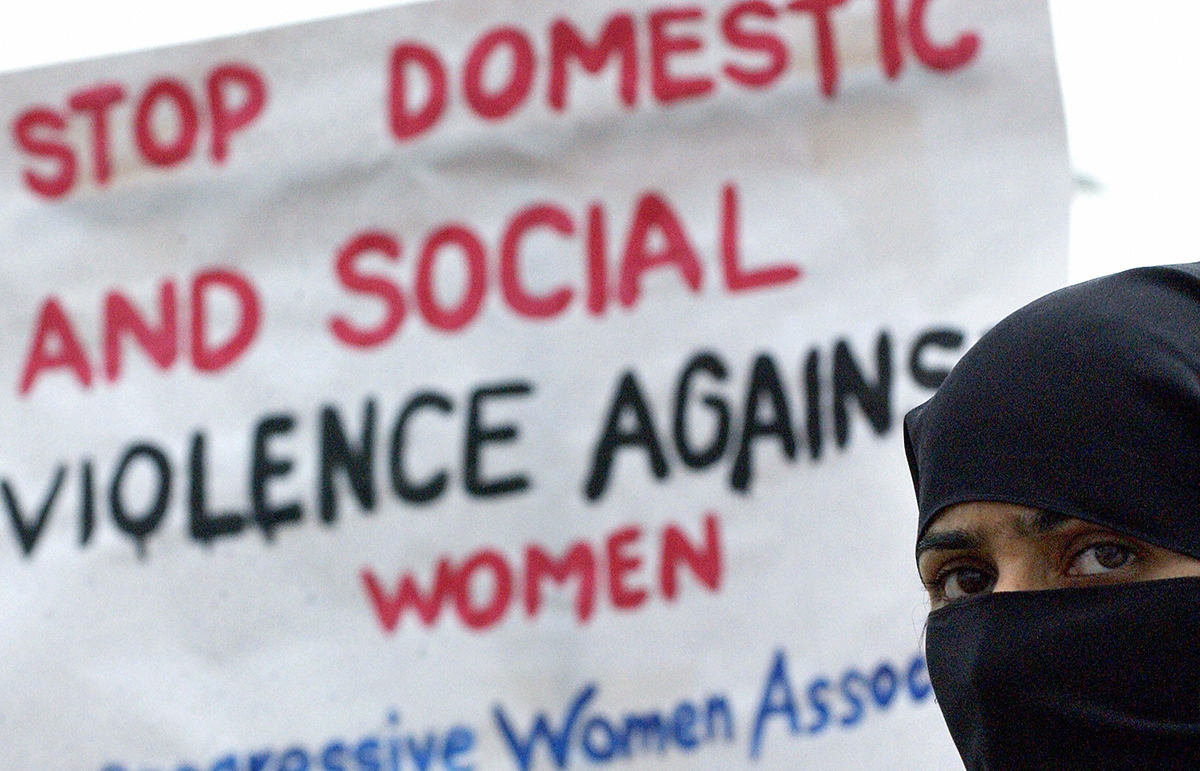
No progressive citizen in Pakistan with any experience of the public discourse on women today expects change to be easy or unambiguous. Not if we have any sense of our history or contested identity. “But it’s 2016,” many young people ask. It’s Women’s Day again, and we are still fighting for the right for our young global achievers like Malala and Sharmeen Obaid Chinoy not to be demonised for speaking out, or making films or flying planes.
The furore unleashed by the religious right on the Women Protection Bill, adopted as law in the Punjab Assembly, left huge definitional gaps unaddressed, but clearly touched a raw nerve that inflected on power and its diffusion.
So here’s the thing. Yes, we are again at a pivotal moment in our jostle for space with extremists who use dogma to define their authority. It’s been that way since a non-elected Gen Zia took Pakistan into the dark ages by appropriating religion for legitimising his politically incorrect coup. Pakistan did not choose him or approve his laws. This matters why? It does to many of us, because to this day “we the people”, an arguable notion of course, are trying to dismantle an onerous architecture of laws and social conditions he and his collaborators created for women, minorities, state identity, and democracy on the firm granite of exclusions.
This edifice of exclusion, of restricted rights, is so difficult to take down because it takes its power from state-defined unitary codes. Today those codes have assumed the language of the armed and dangerous rightist-led street, even many pulpits, and are used to mobilise power against confused, divided majorities.
That’s the sanitised nub of the problem. It’s not as if democracies have not ceded space to the right in Pakistan or even South Asia.
The counterfactuals to old ideological certitudes like democracy are legion. But they pale in comparison to other options. The point is that, quite apart from the burdens of the past and its violent patriarchies, women today find themselves in the cross hairs of multiple targets in all calls to power based on hyper-nationalism.
What must be done when regrouped extremist tides wash over at least some legislative lines we thought we had drawn in the sand in Pakistan? The foundations we had built with blood, grit, and tears don’t always go the way we plan. The right to be prime minister and president, for instance, must extend to all citizens, among other things. But we get up and fight for the right to write the laws again, and build them yet again. We build a dam that uses the resources we have. Democracy in Pakistan, polarised, fragile and shaky, still provides space for public contestation of extreme and misogynist voices shaming our towns squares-on-television. Democracy’s optimal instrument is parliament or the community. Yet we often forget that democracy can only be meaningful if experienced as transparent governance and social justice.
Within that space, apart from seeking economic entitlements, one source of power for women is the enlargement of the public and political space. As lawmakers, we move bills and steer them to law, if we can. The record is not too bad. Progressive forces, despite resistance from a powerful right, too, have used parliament to push through bills. The good news is that some of my own original bills moved on affirmative action, domestic violence, honour killings, repeal of Hudood laws, and sexual harassment at the workplace have seen the light of day.
Monitoring groups record progress, even implementation, particularly on removal of the zina clause co-mingling with rape evidence. The honour-killing bill, brutally slashed by the Musharraf parliament, is back in play at the National Assembly committee driven by Sughra Imam, and can be updated. Many of us are hoping a celebrity movie night at Prime Minister House will have changed that, but so far we still await action.
Despite the fact that advances in women’s legal rights come at personal cost of safety and public witch hunts, more women and men in parliament are prepared to pay those costs. So now would be a good time to amend the law to ensure that women’s choices, voices, and votes count. The way forward would be if more than 10pc of women’s votes are not seen to have been polled in any election, the Election Commission of Pakistan will automatically order a re-poll, be it Hangu, Dir, or anywhere. This will give women the power of the state behind us to seek redress. And it will penalise those who collude to exclude.
This bill is already on parliament’s agenda. It may see reversals, like many others. But the battle will go on.
